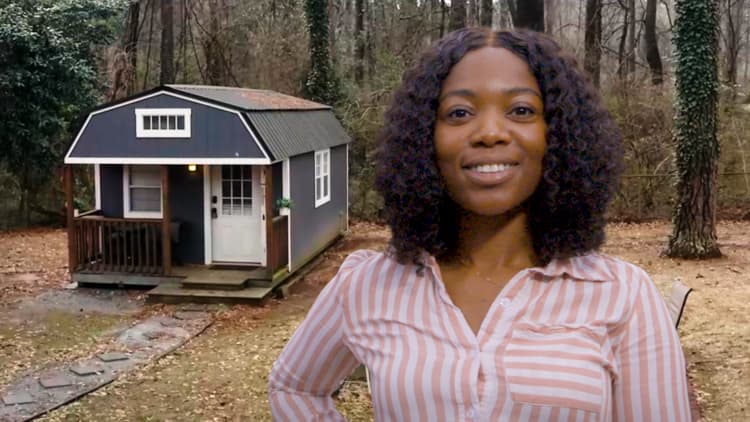Whether you’re in San Francisco, Santiago, Sydney or Seoul, one thing is universal: People want to be seen as cool. But what does “cool” mean? And does it differ from country to country?
My colleagues Todd Pezzuti, Jinjie Chen and I attempted to answer these questions in a new study published in the Journal of Experimental Psychology: General. We asked nearly 6,000 people, ages 17 to 75, across 12 countries to describe what makes someone cool (or uncool).
Each respondent rated either a person they considered cool or a person they didn’t across 15 personality traits: agreeable, conscientious, extroverted, open, calm, adventurous, autonomous, capable, conforming, hedonistic, powerful, secure, traditional, universalistic and warm.
In every country, despite cultural and geographic differences, six traits characterized cool people.
1. Autonomous
Most people follow the rules and strive to do what is expected. But cool people do things their own way.
Think Steve Jobs, who ignored industry standards to help create products like the Macintosh, iTunes and the iPhone. All these things changed how people interact with technology, music and each other.
Cool people aren’t merely deviants. They break the rules in a way that seems helpful or appropriate, like Robin Hood, who stole from the rich to feed the poor.
2. Open
Cool people question convention to pursue unusual experiences and ideas. Albert Einstein became one of the most influential and coolest scientists by pioneering a new way to think about how the world works.
More recently, Billie Eilish has become one of the most exciting artists of the 21st century by experimenting with musical genres.
3. Adventurous
Rather than comfort and safety, cool people seek out the new, the risky and the exciting.
Literary character Dean Moriarity became a cool icon by restlessly pursuing new people, places and experiences in Jack Kerouac’s “On the Road.”
And Anthony Bourdain set the standard for culinary cool by trotting the globe to pursue the most interesting dishes and dives.
4. Hedonistic
Cool people know how to enjoy life, sometimes to a fault. They chase pleasure in the moment with little regard for the future.
Think of Hunter S. Thompson’s characters in “Fear and Loathing in Las Vegas” and “The Rum Diaries.” Or real-life legends like Janis Joplin, Jean-Michel Basquiat and Tupac Shakur, whose fast-living styles became part of their mythos.
5. Extroverted
Being cool means being seen. Cool people may march to their own beat, but they share their ideas, experiences, fashions and styles with others — and increasingly, with the world online.
The Fonz from “Happy Days” epitomized old-school social charisma. Today, Dwayne “The Rock” Johnson exemplifies cool because he connects with athletes, businessmen, musicians, actors and even Disney princesses.
6. Powerful
Cool people have power and presence. They command attention and influence others, not through force, but by sheer magnetism.
And because they’re both extroverted and powerful, they drive change. Beyonce has shaped the direction of music, fashion, feminism and social discourse over the past 20 years, just as Muhammad Ali revolutionized sports and civil rights with his dominance, confidence and conviction.
Chasing coolness
Being seen as cool promises admiration and respect. But it requires questioning conventions and taking risks, traits that many people don’t have.
Some traits, of course, are malleable. For example, anyone can become more extroverted, adventurous and risk-taking through effort and practice. The bigger challenge is that most risks don’t work out. But when you discover new possibilities and communicate these discoveries, you’ll have a better chance of moving culture forward.
Caleb Warren is an associate professor at the Robert A. Eckert Endowed Chair in Marketing at the University of Arizona. He thinks about what makes things funny, what makes things cool and what helps people reach their goals. He has been published in academic journals, including the Journal of Marketing, Journal of Consumer Research, Psychological Science, the Journal of Personality & Social Psychology. Caleb teaches undergraduate, masters, MBA, and PhD students how to communicate and understand consumer behavior.
Want to stand out, grow your network, and get more job opportunities? Sign up for Smarter by CNBC Make It’s new online course, How to Build a Standout Personal Brand: Online, In Person, and At Work. Learn from three expert instructors how to showcase your skills, build a stellar reputation, and create a digital presence that AI can’t replicate. Sign up today with coupon code EARLYBIRD for an introductory discount of 30% off the regular course price of $67 (plus tax). Offer valid July 22, 2025, through September 2, 2025.





